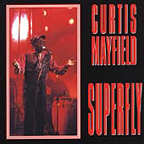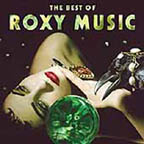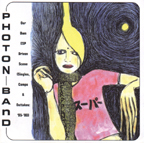|
Summertime is the right time for dinosaur bands from the 60s and 70s to reunite and lumber across the nation, often packaged together in order to better shake down vulnerable baby-boomers for their spending money. Who would have ever expected Roxy Music to join the nostalgia parade, though? From 1972 to '82 (excepting a two-year hiatus in the late '70s), Roxy Music fashioned a career of innovation that made them one of the most original and influential rock bands ever - up there with the Clash, the Byrds, the Velvet Underground, and yes, the Beatles. This isn't REO Speedwagon or Uriah Heep that we're talking about. Still, Roxy's three core members - singer/keyboardist Bryan Ferry, saxophonist Andy Mackay, and guitarist Phil Manzanera - have joined together for a summer world tour, which means that it's the perfect time for a remastered best-of. The Best of Roxy Music covers much of the same ground as previous compilations, only it removes songs from Ferry's solo career and is sequenced in reverse order. This means that all of Roxy's most commercially successful music (in America, anyway) comes first - i.e. the crystalline, suave sounds of "More Than This" and "Avalon," from 1982. As the disc progresses, strangely, the music becomes more innovative, tracing Roxy's career backward through 1975 (the funky singles-bar anthem "Love Is The Drug"), 1973 (the emotional whirlwind "Mother of Pearl") and on to their first two albums, which included founding member Brian Eno and carved out new creative territories for what had become a stagnant and often-tedious genre. Ferry's lyrical outlook was unique as well; drenched in self-awareness, he made his own narcissistic impulses seem like universal truths - as exemplified in 1973's ode to the pleasures of the unexpected, "Street Life," where he discards the meritocratic mindset of respectable society as a foolish pipe dream: "Education is an important key, yes/But the good life's never won by degrees, no/Pointless passing through Harvard or Yale/Only window shopping - and strictly no sale." Amen. -Patrick Reed
 Curtis Mayfield Curtis MayfieldSuper Fly Rhino Records Sometimes it's best to leave a classic engraved into the dusty vinyl on which it was originally pressed. While a great majority of re-releases help to infuse music with a sense of its ancestry, there are some albums which should remain on the shelf. Such is the case with Rhino Records re-release of Curtis Mayfield's movie soundtrack Super Fly. While there is always a market for unabashed minority stereotyping (reference the Wayans brothers' Don't Be a Menace To South Central), it has to be set in a time which makes it tolerable. Today, Super Fly (the movie) is seen for what it was back then - an almost shameless super-stereotype of impoverished minorities hyped for mass-consumption. Rhino Records has a history of dragging up old LPs whose royalty fees were tossed in the can before the Nineties so that they can be cheaply marketed to a fresh crop of mullah-packing youth. As such, Rhino Records almost ruins (and debases funk music) Super Fly for the modern listener. The album, which made sense in its own time as a soundtrack of poppy funk music to complement the 1970s blacksploitation film, no longer seems appropriate to a league of Americans corrupted by the stylings (God save them!) of rap-hustlers like Master P. The numerous references to pimps, pushermen, drug dealers and ghetto-life anecdotes begin to sound like a bad, though instrumentally strong, rap song for those who are unfamiliar with Mayfield's other works. Indeed, it will leave the unexposed generation with good party music, perhaps being spun at 1970s-themed dances, but any further will call forth a collective "Huh?" To appreciate Mr. Mayfield's work, buy Anthology 1961-1977 and Live at Ronnie Scott's. To appreciate funk music, buy any Parliament album. Rhino Records, please cease and desist! Curtis - we can only say we're sorry. -Eric Newman
Lemme run a theory by ya: each generation attempts to replicate in its music the sounds it heard in childhood. Thus, punk's revival of the short-n-simple ethic of Sixties hits; thus, post-punks' merging of soul, funk and glam with punk; thus, the eight-track epigones of grunge. Thus, the lo-fi movement. Remember AM radio? How you'd be listening to Curtis Mayfield or ELO or Jim Croce, and there'd be static or interference from another station or mysterious sounds from the ether? This tussle between pop and noise became an aesthetic for bands such as the Grifters, Pavement and the Swirlies, who were young enough to be part of Gen DIY, but old enough to have grown up on AM Top Forty. Lo-fi was sugar full of bugs - sweet and sparkly, but larded with buzz and scramble. Art Di Furia and his Photon Band are a perfect example. Sub-titled "Singles, Comps and Outtakes '95-'00," these eighteen tracks showcase a wonderful pop sensibility wed to a love of hiss. The early songs, like the tough-guy pout of "I Understand" or the chuggin', fruggin' "It to Get," sound like a lovelorn fistfight between Unwound and the Hollies, while the later material is a K-tel compilation from an alternate universe where the Seventies didn't suck. Dig the acid-country twang of "Little Mind," the Eagles-ish dirge, "747," the surging swirl of "Would You Believe" or the stone perfect "Broken Melody," a song Neil Sedaka woulda given his left nad to record. I wore out my cd player spinning this, it's that addictive. -Bill Widener
|
||
|
|
 Roxy Music
Roxy Music Photon Band
Photon Band